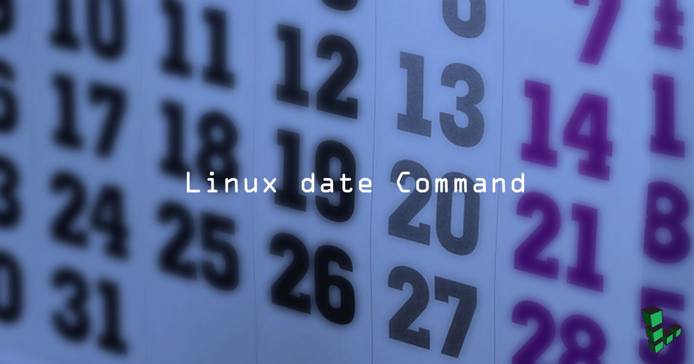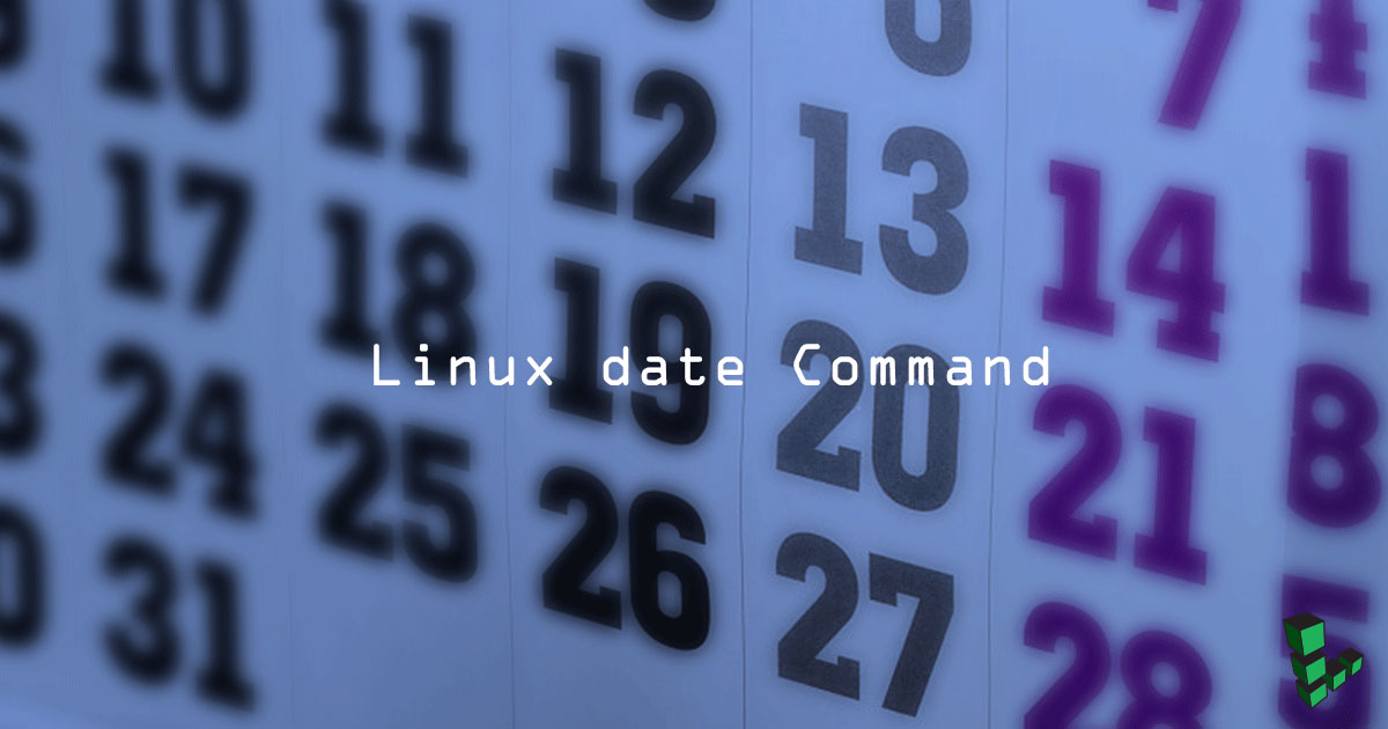How to Use the Date Command in Linux
Traducciones al EspañolEstamos traduciendo nuestros guías y tutoriales al Español. Es posible que usted esté viendo una traducción generada automáticamente. Estamos trabajando con traductores profesionales para verificar las traducciones de nuestro sitio web. Este proyecto es un trabajo en curso.
The date command displays the current date and time. It can also be used to display or calculate a date in a format you specify. The super-user (root) can use it to set the system clock.



Use the Linux date Command
When used without options, the date command displays the current system date and time, including the day of the week, month, time, timezone, and year:
date
Thu Apr 13 10:04:04 EDT 2017
To operate on a specific date, you can provide one with the -d flag:
date -d "1974-01-04"
Fri Jan 4 00:00:00 EST 1974
date has many display formatting options. Provide date with the formatting string by prefixing it with a plus sign:
date +"Week number: %V Year: %y"
Week number: 33 Year: 10
The format string is then output with each formatting token substituted by its value. %V is the formatting option to display the current week number, and %y represents the last two digits of the year.
Formatting Options
Run date --help to display a list of formatting options.
Here’s a small sample of the formatting tokens date supports:
| Token | Output |
|---|---|
| %a | locale’s abbreviated weekday name (e.g., Sun) |
| %A | locale’s full weekday name (e.g., Sunday) |
| %b | locale’s abbreviated month name (e.g., Jan) |
| %B | locale’s full month name (e.g., January) |
| %c | locale’s date and time (e.g., Thu Mar 3 23:05:25 2005) |
| %F | full date; same as %Y-%m-%d |
| %s | seconds since 1970-01-01 00:00:00 UTC |
For more details, run man date to view the entire man page.
Override the Timezone
By default, date uses the timezone defined in /etc/localtime. The environment variable TZ can be used to override this behavior. For example:
$ TZ=GMT date
Fri Aug 20 15:15:36 GMT 2010
Valid timezones are defined in /usr/share/zoneinfo/.
Examples
The following examples illustrate how you can use the date command to find the date and time at various points in time.
$ date -d now
Wed Aug 18 16:47:31 EDT 2010
$ date -d today
Wed Aug 18 16:47:32 EDT 2010
$ date -d yesterday
Tue Aug 17 16:47:33 EDT 2010
$ date -d tomorrow
Thu Aug 19 16:46:34 EDT 2010
$ date -d sunday
Sun Aug 22 00:00:00 EDT 2010
$ date -d last-sunday
Sun Aug 15 00:00:00 EDT 2010
Other valid date time strings include: last-week, next-week, last-month, next-month, last-year, and next-year.
Seconds from epoch
date has other surprising uses. For example, it can be used to convert a given date/time to Unix epoch time (seconds since 00:00:00, Jan 1, 1970) and back. The following example will show you the seconds from epoch to the current time:
$ date +%s
1282163756
Seconds from epoch to the provided date/time
$ date -d "1974-01-04" +"%s"
126507600
Convert epoch to a date
$ date -d "UTC 1970-01-01 126507600 secs"
Fri Jan 4 00:00:00 EST 1974
$ date -d @126507600
Fri Jan 4 00:00:00 EST 1974
Determine which day of the week a given date was
$ date -d "1974-01-04" +"%A"
Friday
Use date in Scripts and Commands
You can assign the output of date to a shell variable and then use it later in your scripts. For instance:
$ STARTTIME=`date`
$ echo $STARTTIME
Fri Aug 20 11:46:48 EDT 2010
$ sleep 5
$ echo $STARTTIME
Fri Aug 20 11:46:48 EDT 2010
You can also use date to create filenames that contain the current day:
tar cfz /backup-`date +%F`.tar.gz /home/caker/
This would tar and gzip the files in /home/caker/ into a filename called backup-2010-08-20.tar.gz.
Set the Date Manually from the Linux Terminal
If your system is running ntpd, and you’ve set your timezone correctly, you shouldn’t have to change this setting. However, if you find you need to set the system clock manually, use the --set option. In this example, we’re setting the date and time to 9:14pm on Thursday, April 13, 2017:
date --set="20170413 21:14"
This page was originally published on

